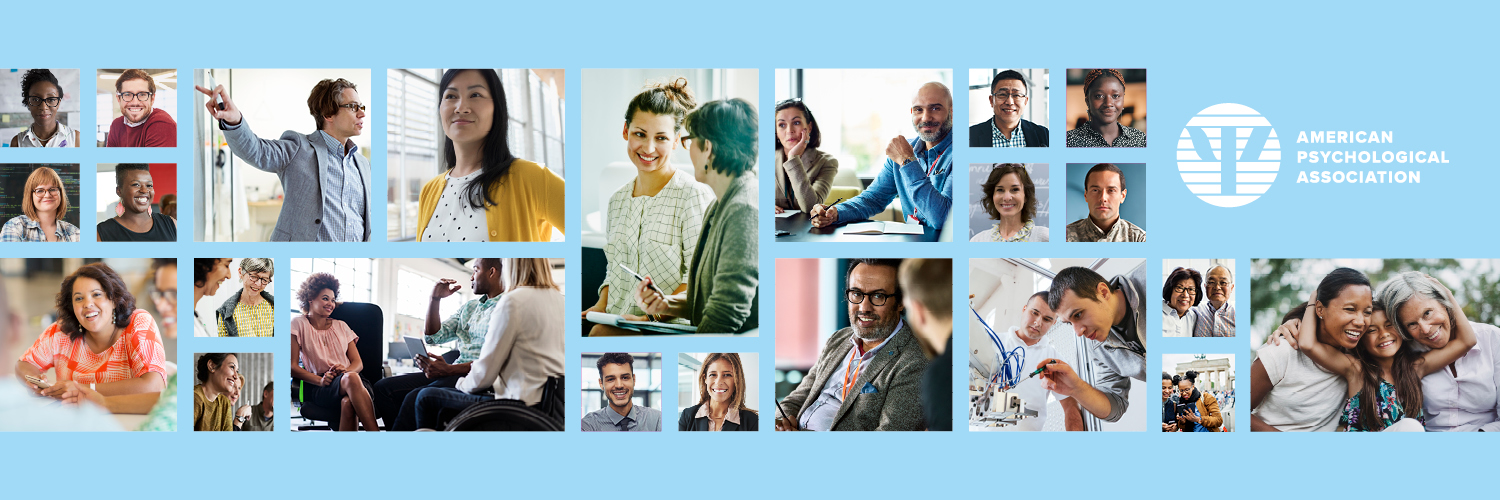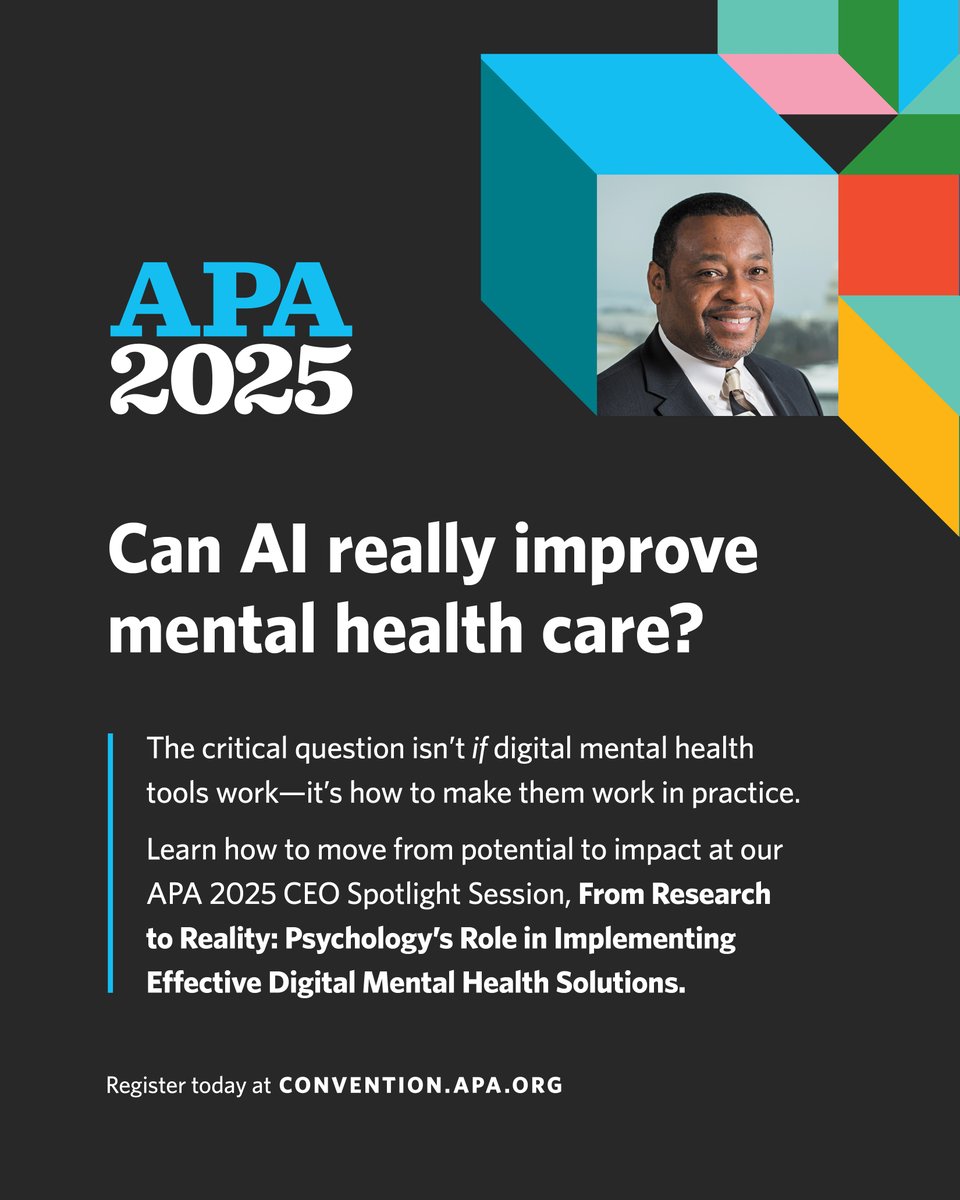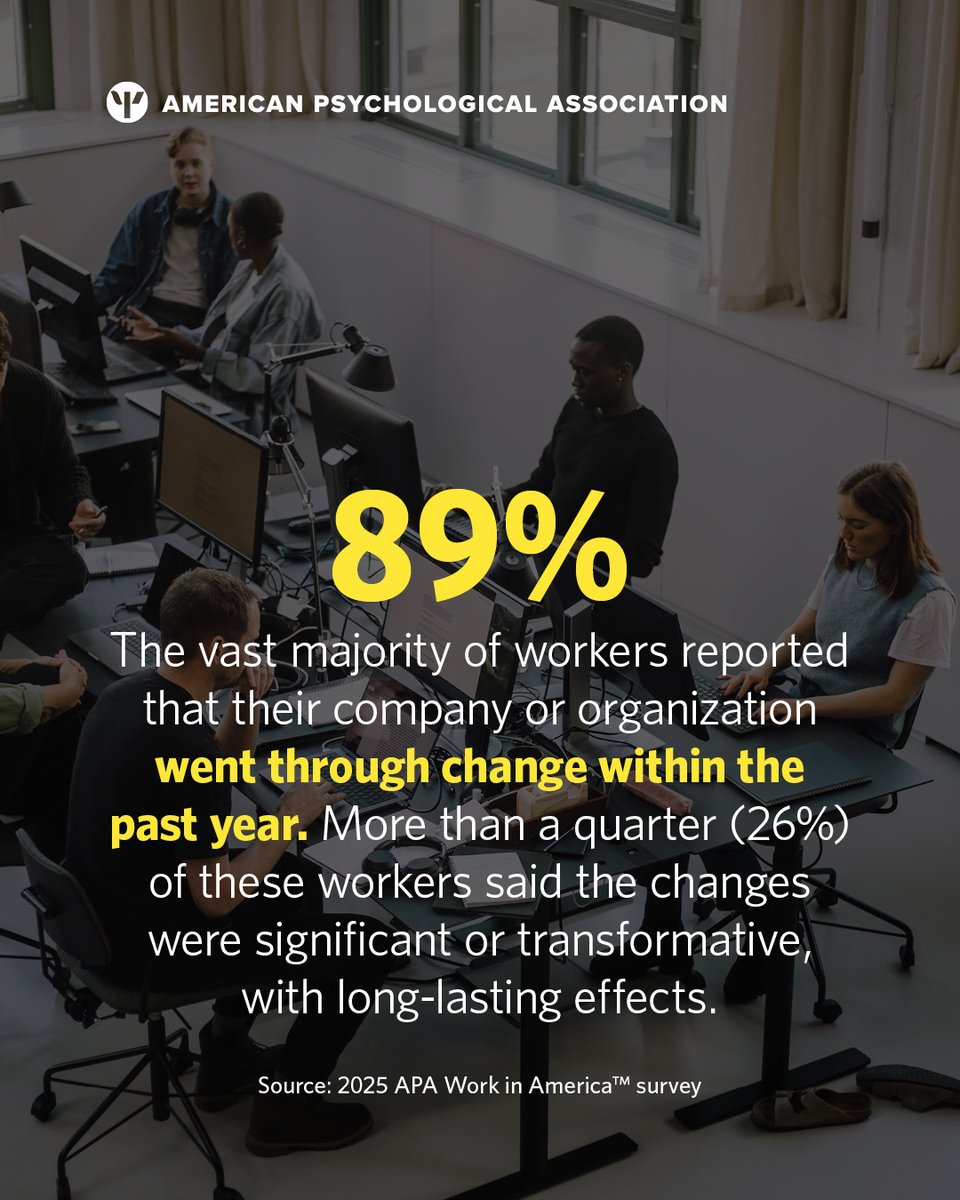
American Psychological Association
@APA
Official voice of American Psychological Association | Promoting advancement, communication & application of #PsychScience to benefit society & improve lives
Hoarding disorder is more than just clutter—it’s a serious mental health condition that affects approximately 1 in 40 people and worsens with age. Learn more about how psychologists are helping treat the condition: at.apa.org/zlt
Unlock new possibilities at #APA2025. Discover recently added programming that will allow you to engage with thought leaders and pioneers from across the field of psychology. Learn more about these dynamic new sessions and register: at.apa.org/5eafc2
How do clinicians treat BPD and handle misconceptions and stigma around the disorder? Read more: at.apa.org/yo0
Asking your teen about the kind of videos they enjoy most, and how they decide when to take a break can help guide discussions about the nature of the content your teen is watching online. See more tips on understanding today’s digital landscape: healthyviewing.apa.org
Building a classroom culture where students exposed to trauma feel psychologically safe is critical for their academic success. “That’s how we move kids through a trauma experience into a learning experience,” says Dr. Tammy Hughes. Learn more: at.apa.org/825a58
Congratulations to Dr. Jessica Jones Nielsen! Read more about the recent accomplishments of esteemed #psychologists from across the country: at.apa.org/e78089


Why do some people admire aggressive #leaders while others see them as clueless? 🤔 New #research suggests it all comes down to how we see the world. Learn more: at.apa.org/pnj
Are you getting enough sleep? 💤🛏️ Psychologists and other scientists have identified common causes and risk factors for sleep disruption. Learn more: at.apa.org/a109b6
Ever get the eerie feeling that you've been here before, but you know you haven't? Dr. Chris Moulin says research points to some common triggers for déjà vu, but one of memory’s strangest tricks remains largely unpredictable. Hear the full conversation: at.apa.org/821
In a time when tensions run high, what if the real power lies in listening instead of arguing? Dr. Bill Doherty, co-founder of @braverangels, shares why understanding others—especially those we disagree with—might be the key to healing our divided society.
Hormonal contraceptives were developed before scientists had a clear understanding of the far-reaching role of hormones in the body and brain. Learn more about new research exploring how birth control pills affect the brain, stress responses, and health: at.apa.org/zw3
Can you spot the warning signs that your child is being cyberbullied? Help keep them safe with this advice from experts, and take the interactive quiz from APA and @CommonSense: at.apa.org/cgv
Congratulations to Drs. Roselinde Kaiser, Allyson Mackey, Melanie Pellecchia, Justin Parent, Maital Neta, and Gavin Price! Read more about the recent accomplishments of esteemed #psychologists from across the country: at.apa.org/e78089
#AI tools will not replace therapists, but they could be used to make #mentalhealth care providers more efficient and help them reach patients before they are in crisis. Hear the full conversation with APA's @drvailewright: at.apa.org/ef9796
At this dynamic #APA2025 discussion between APA CEO Dr. Arthur C. Evans, Jr. and leading AI experts, we’ll move beyond buzzwords and dive into real-world application. Learn more and register for APA 2025: at.apa.org/xdr

Whether you’re exploring new technologies or seeking guidance on existing tools, APA's new ethical guidance for AI in the professional practice of health service psychology can help you ethically navigate the evolving tech landscape. Read more: at.apa.org/q43
Microaggressions make students feel uncomfortable and are a distraction from the learning process. Hear psychologist Dr. Tara Raines give examples of microaggressions in the classroom: at.apa.org/72fe30
The way we work in America is changing. But technological, economic and political shifts don’t just affect how we work—they are also related to workers' well-being, according to APA's new #WorkInAmerica survey. See the full report: at.apa.org/onr

Have you ever heard someone say “I’m so #OCD” about liking things organized or cleaned a certain way? OCD researcher Dr. Dean McKay and OCD advocate Uma Chatterjee discuss common myths about the disorder on our award-winning podcast. Hear more: at.apa.org/yyy
Domesticated animals like dogs and cats sometimes offer food to humans, but research now suggests that nondomesticated animals, such as orcas, may demonstrate similar behavior. Learn more: at.apa.org/7ox